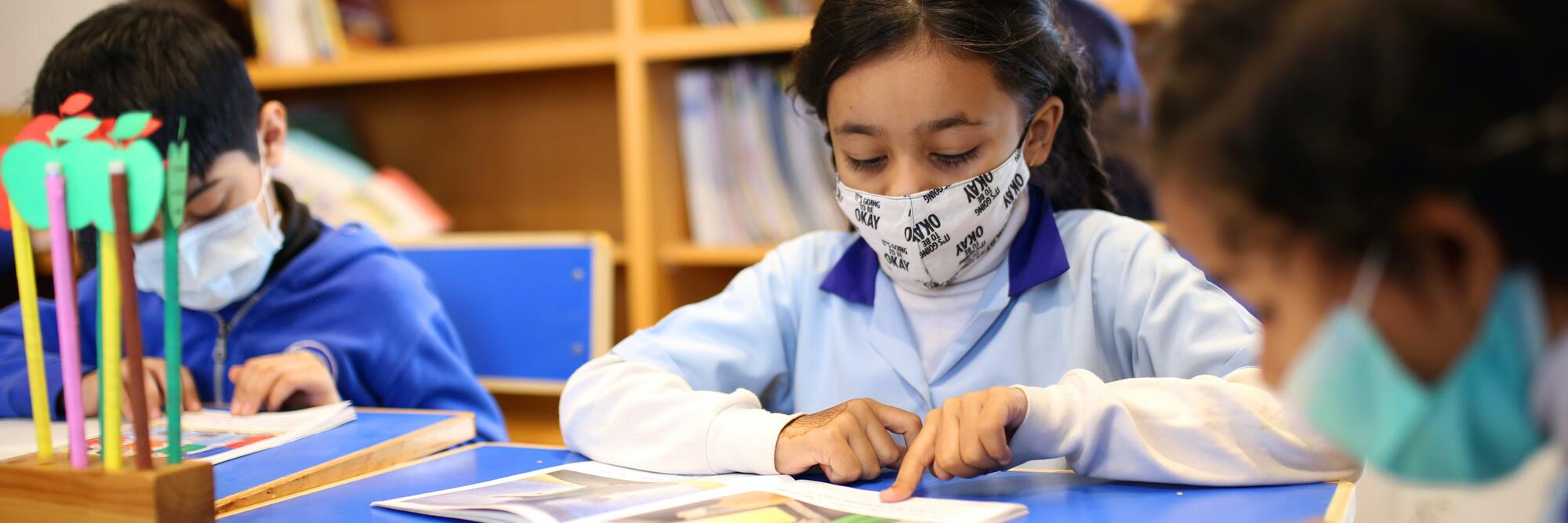As the world begins to emerge from the pandemic, schools are opening their doors to welcome students back to face-to-face teaching, hopeful for the future. Still, the first footsteps into this new normal are unsteady and it's natural for parents to continue to be concerned about the safety of their children in schools. They may wonder what precautions schools are taking and, more importantly, do they work?
Here's a rundown of some strategies being used around the world and their effectiveness.
Making vaccines available
The release of the Covid-19 vaccine has been a hot-button topic, but has been shown to be safe and effective in slowing the spread of the illness.
Currently, the vaccine is approved for children over the age of 12 and can be safely administered to secondary school students. Most elementary school students are too young to receive the vaccine at present. The best way to protect this age group is for adults around them, such as family and teachers, to get the vaccination themselves, thereby reducing the likelihood of transmitting Covid-19.
Some vaccinations, like MMR and polio, have long been a requirement for school attendance in some parts of the world, and it's possible that this will be the case for the Covid-19 vaccination eventually, though there seems to be significant push-back on this all over the world. Private schools, however, typically have their own regulations and some may require vaccinations for attendance. There will usually be an alternative available for those who don't wish to vaccinate, such as continuing to take lessons from home.
Countries such as the UK are offering on-site school vaccination programmes for easy access.
Rethinking the physical school environment
As Covid-19 is transmitted through airborne particles, schools have been working on adapting their buildings and grounds to allow more space between students.
One simple strategy is removing several desks from a classroom and spacing out the remaining desks. This is a common approach and can be effective as long as the room has good ventilation and effective air circulation. In some countries, such as Denmark, lessons are even being held outdoors when weather allows, where there's plenty of fresh air and space.
Meanwhile, some countries have opted to rearrange school schedules to limit the number of students in class at any given time. Australia, for example, rotates in-person attendance. Each day of the week, a different grade group comes to school, while the rest of the week students continue to learn from home. There are also schools implementing a staggered return to full-time in-person schooling, going grade by grade.
Implementing consistent screening and testing
Most schools have had screening procedures like temperature checks in place for quite some time. Screening is useful but is far from a guarantee of safety, since many cases of Covid-19 are asymptomatic. Testing, on the other hand, is much more reliable but not as easy to conduct.
Some governments strongly recommend that regular testing be undertaken. For instance, the UK government suggests that staff and secondary-level pupils be tested twice a week. Positive test results require that the student goes into isolation. A similar method in Israel mandates regular testing, with entire classes going into quarantine should any one student test positive.
In some cases, schools have had to go back into temporary shutdown due to a spike in infections. This has previously happened in Israel and parents should be aware that this is something that can occur. On the other hand, some countries prefer to steam on. Turkey's health minister, for instance, has said, "We will keep schools open this year under any circumstances. It's not about being the last to close, they should never close."
Staying clean and masked up
Masks can still play a key role in keeping Covid-19 contained. In New Zealand, children in schools are encouraged to wear masks but are not required by law to do so. In other parts of the world, such as Mumbai, making use of masks and sanitiser at school is compulsory. Both are supplied by the school but children are required to carry extra masks and sanitiser with them in their school bags.
Parents have often been concerned that their children won't be able to adapt to regular mask wearing, especially younger kids who may not understand why it's necessary. On the contrary, teachers say that younger children are adapting well, with handwashing and wearing masks having become second nature to them.
A clean school environment is also helpful in limiting exposure to the virus. Many schools have upped the intensity and regularity of cleaning, especially in high-traffic areas.
Providing parents with options
Some parents don't feel comfortable letting their child go back to school just yet, perhaps waiting for greater rates of vaccination among the general population or because they don't wish to abide by school regulations such as those involving testing, vaccination and masks. In the case that parents wish to keep their children at home, most schools should allow them to continue with online learning as before.
It's worth noting that while public schools abide by state mandates, private schools have more freedom to implement their own policies. In some cases this means stricter requirements, while in others there may be less of an emphasis on a particular safety measure. Parents unhappy with their current school's stance may find it helpful to consider a new school with a perspective closer to their own, or to continue to homeschool their children.



